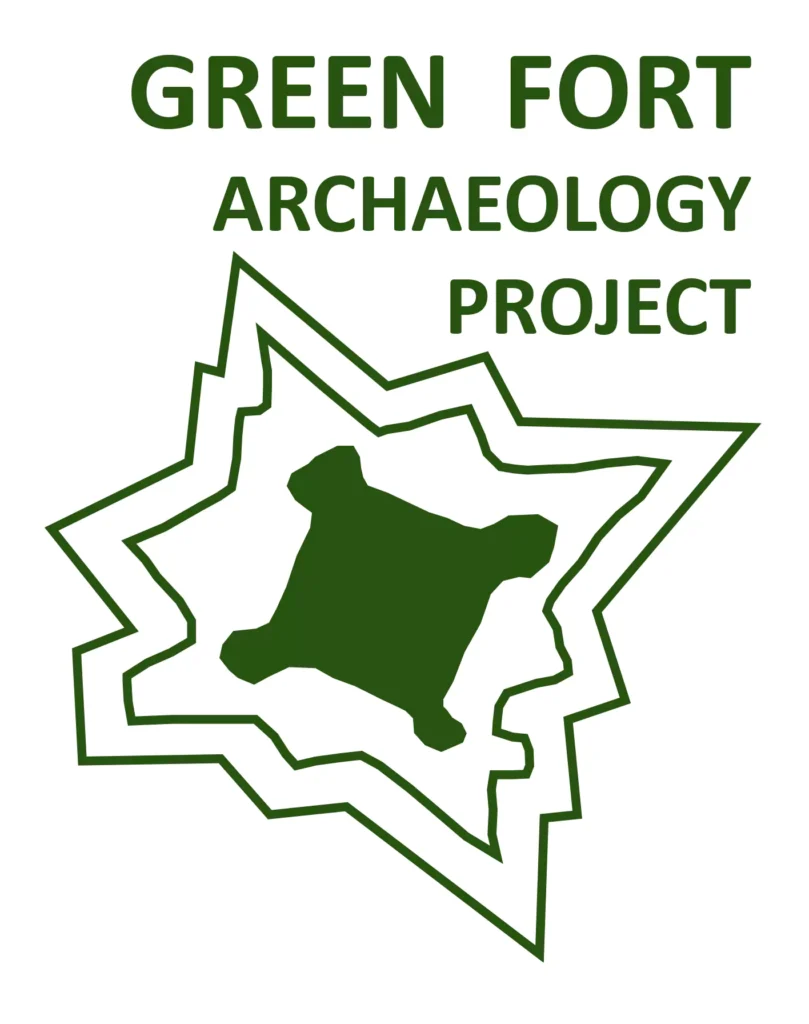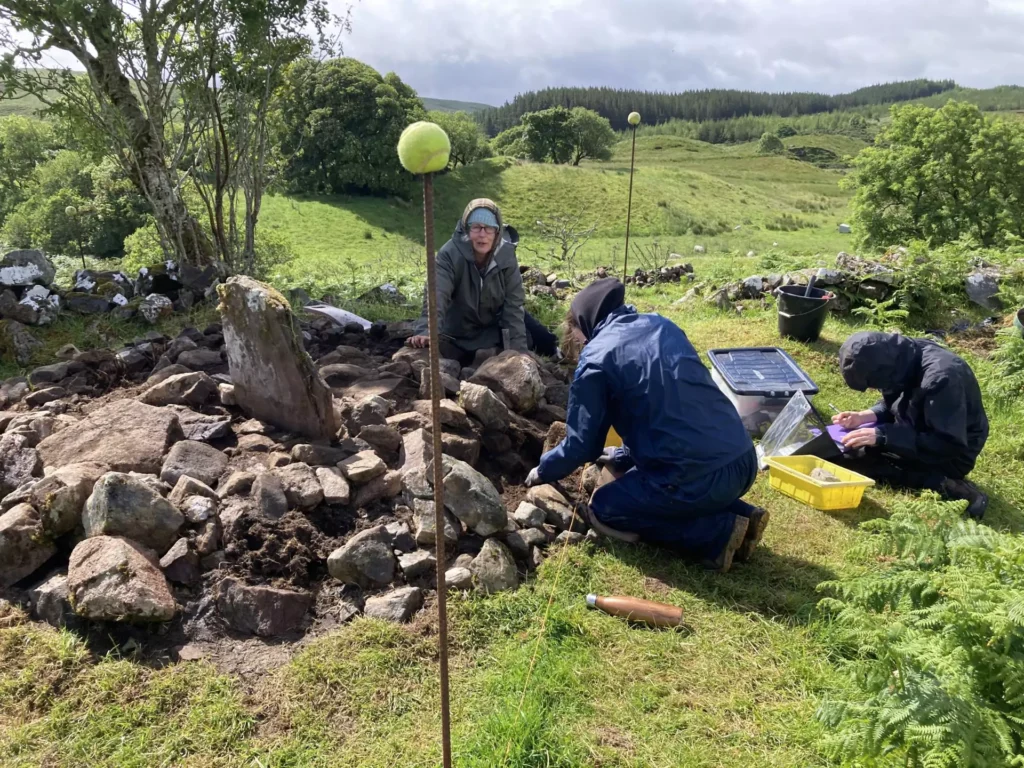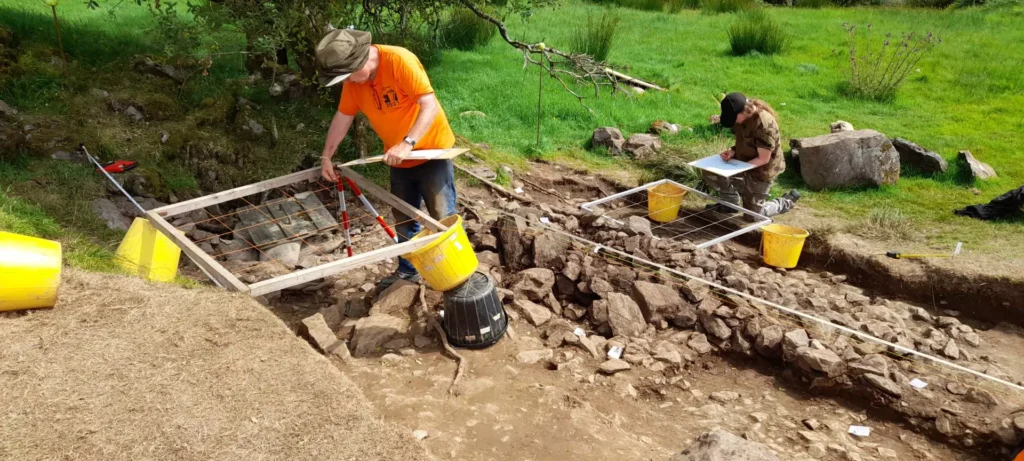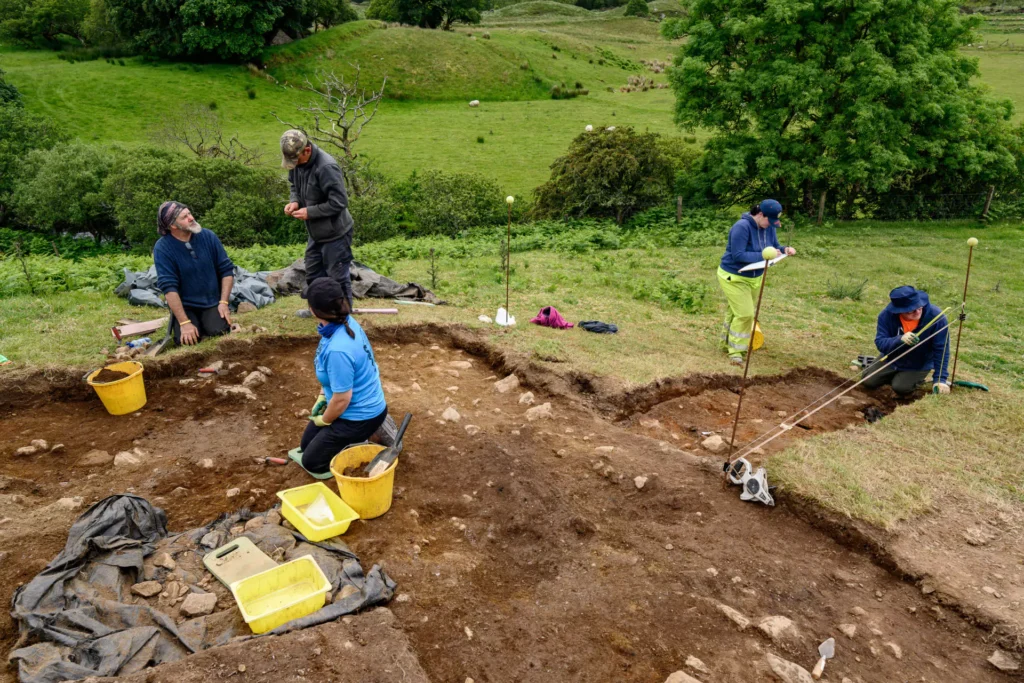View all Courses
Archaeological Field Studies International
Certificate
Course Details
| Course Code | SG_SARCJ_S06 |
|---|---|
| Level | 6 |
| Duration | 1 semester |
| Credits | 18 |
| Method of Delivery | Blended |
| Campus Locations | Sligo |
| Mode of Delivery | Part Time |
Course Overview
Accommodation and food are not included but suitable facilities will be recommended at the online sessions. This allows students to suit their own budget and needs, and to share accommodation if they wish to do so. Those without their own transport will need to stay within walking distance of the excavation and ATU Sligo.
Fitness and safety
Note that both the study tour and the excavation require a reasonable level of physical fitness. Students will need to be able to walk over rough ground for 500m or more without difficulty, excavation is a physical activity that requires a similar level of fitness to gardening. You should be aware that you may be outside in all weathers for extended periods.
Online classes (End-Feb to early May 2025)
Students will undertake online classes for two hours per week from the end of February until early May. These will introduce students to the history and archaeology of the Green Fort, archaeological techniques and recording. For those unable to attend the live classes, these will be recorded and students can watch these at a time to suit their own schedule.
The Study Tour (19 – 30 May 2025)
This module involves touring the spectacular landscapes of the northwest of Ireland for ten days to examine a full range of Irish archaeological field monuments and a number of visitor centres. Students will learn first-hand about Irish archaeological field monuments and their contexts in the wider landscape and build their knowledge of Irish culture through this study tour.
The Excavation and post-excavation (2 – 20 June 2025)
A topographical survey of the ‘Green Fort’ was carried out by Sam Moore and students of IT Sligo now ATU Sligo) over a number of years. In 2021 Eoin Halpin of AHC Ltd used this baseline to record the present state of the monument as part of scrub clearance works undertaken by Sligo Co. Co. Following on from this, also in 2021, Sligo Co. Co. commissioned licensed geophysical (magnetometer and resistivity) surveys of the monument, which were conducted by Archaeological Consultancy Services Unit (ACSU). The topographic and geophysical surveys have informed the excavation methodology, providing a focus for planning trench locations.
The first two weeks of the course will concentrate on excavation, while the third week will concentrate on post-excavation analysis. In the event of sustained bad weather in the first fortnight, indoor work will be undertaken, with the aim of making up lost excavation time in the third week.
Excavation
In 2025 the excavation will focus on a single 30m long trench in the interior of the fort. This will provide an insight into the structures and features that have been identified by geophysics and survey, in particular a circular anomaly in the centre of the fort.
The overall aim of the project is to investigate the nature and origin of the archaeological remains at the Green Fort and to place them in their wider cultural and landscape context. Students will contribute to this overall excavation aim through their input to the survey, excavation and recording work on site. The Green Fort is visited regularly by tourists and locals, and students will also have the opportunity to develop skills in explaining heritage to members of the public.
Post-excavation Analysis
Post-excavation analysis will take place in the Archaeology Lab at ATU Sligo. Students will undertake essential tasks such as washing artefacts and ecofacts; processing soils for specialist analysis; preparing stratigraphic matrices and reports; illustrating and photographing artefacts. They will gain an awareness of the component parts of the post excavation process and the roles played by various specialists. They will contribute material for creation of the final excavation report and ultimately work towards bringing an excavation to full publication, and the preparation of the archive for final deposition in the National Museum of Ireland.




Course Details
Year 1
| Semester | Module Details | Credits | Mandatory / Elective |
|---|---|---|---|
| 1 |
Archaeological Excavation and Post-Excavation International 1The aim of this module is to provide practical experience of archaeological excavation skills, with an introduction to some aspects of the post-excavation process. The module runs online for a number of sessions through the semester and then for two weeks on-site at the end of the semester. This is a 6-credit ECTS module (Equivalent to 3 Semester Credits – US), aimed at overseas students seeking transferrable credit. Learning Outcomes 1. Have a knowledge of aspects of Irish archaeology and history 2. Demonstrate awareness of and an ability to carry out key archaeological excavation and recording techniques. 3. Understand and be able to explain how an archaeological excavation is conducted. |
06 | Mandatory |
| 1 |
Archaeological Excavation and Post-Excavation International 2The aim of this module is to provide practical experience of closing an archaeological excavation and of post-excavation skills. The module runs weekly online through the Spring semester, and then for one week on-site at the end of the semester. This is a 6-credit ECTS module (Equivalent to 3 Semester Credits – US), aimed at overseas students seeking transferrable credit. Note that a co/prerequisite for this module is that the student is also registered for, or has already successfully completed the module 'Archaeological Excavation and Post-Excavation 1'. Learning Outcomes 1. Differentiate soil horizons and stratigraphic contexts and express these in both matrix and written formats 2. Demonstrate an awareness of the component parts of the post excavation process and the roles played by various specialists. 3. Demonstrate an ability to carry out a variety of post-excavation related tasks |
06 | Mandatory |
| 1 |
Archaeology of Ireland Study Tour – Northwest of Ireland (International)This module involves touring the northwest of Ireland for ten days in order to examine a full range of Irish archaeological field monuments and a number of visitor centres. This course is ideally suited for any students, either with or without an archaeology background, who wish to initiate or expand their knowledge about Irish culture, landscape and archaeology. Students of this module will learn first-hand about Irish archaeological field monuments and their contexts in the wider landscape, and build their knowledge of Irish culture through this study tour. It is ideally suitable for participants who completed modules in ARCH07035 Prehistoric Ireland, from Ice Age to Iron Age: 12,500BC – AD400 and ARCH07036 The Archaeology and Architecture of Medieval Ireland 400-1550AD. Learning Outcomes 1. Outline the significantaspects of the archaeology of Co Sligo 2. Demonstrate knowledge of the principal sites visited and their landscape setting 3. Apply gained knowledge towards understanding the role of monuments types in the northwest of Ireland |
06 | Mandatory |
Recommended Study Hours per week
Examination and Assessment
On-Campus Attendance Requirement
Note: Check programme Examination and Assessment requirements, as they may involve examinations to be taken on campus.
Progression
Download a prospectus
Entry Requirements
This SPA is open to all qualified applicants, those with an existing Level 5, and individuals who have other relevant experience.
Careers
Further Information
Start Date
Who Should Apply?
Contact Information
Dr Fiona Beglane
E: fiona.beglane@atu.ie
Admissions Office
T: 353 (0) 71 931 8511
E: admissions.sligo@atu.ie
Online Student Advisor
Saoirse Kennedy
T: +353 71 930 5482
E: Saoirse.kennedy@atu.ie
Environmental Science


